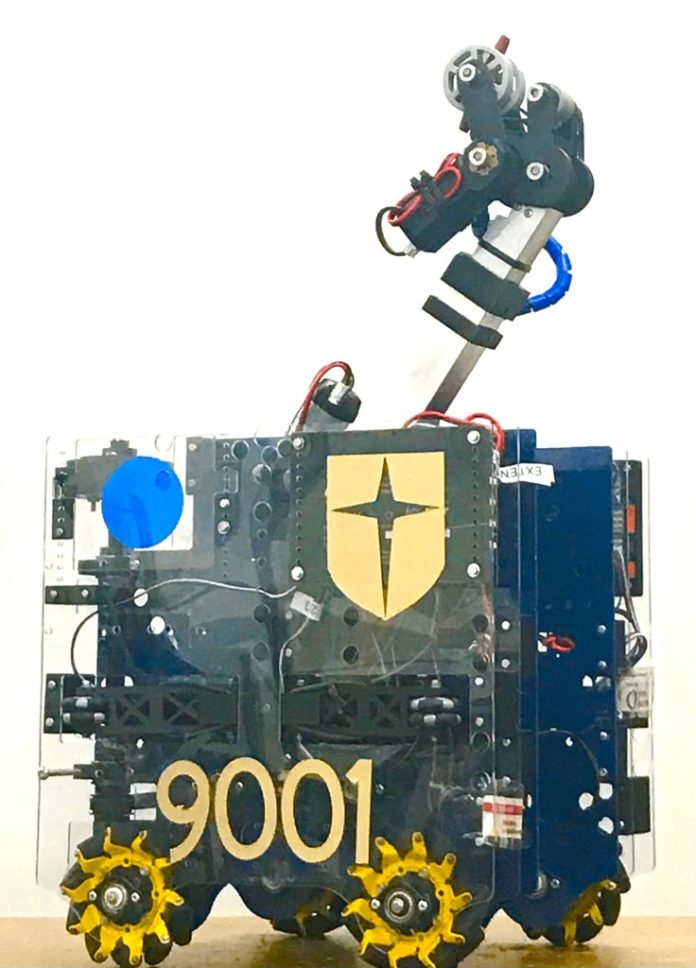The robot carefully maneuvers between the obstacles and picks up a block. It speedily travels across the field, placing it on the highest layer of the cargo hold. As the timer winds down, the complicated machine starts spinning the disk, with the duck pieces falling off it each time and scoring more points. The time buzzes, with a narrow victory for the Jesuit Rangers.
Competitions
Every robotics team competes in three league meets for the FTC (First Tech Challenge) tournament. In the end, certain teams with move on to the regionals and later phases. Only the top 3 teams at the end of the league meets can directly move on to the regional tournament, but lower-ranked teams who still performed well are invited to participate in the super-qualifiers as another chance to make it to the regionals.
3 League Meets
In each league meet, teams will play around 5 to 6 matches each. These matches have two alliances, formed with two teams, whose robots compete against each other to score more points. However, in these league meets, instead of looking at victory or defeat, the points scored by the team are only significant as they contribute to the team’s ranking.
Basic Game Structuring
A match consists of an autonomous phase, a driver-controlled phase, and an endgame. In the autonomous phase, the robot must perform all actions on its own without any human input, whereas in the other two stages, drivers use controllers to operate the robots.
Throughout the match, there are various ways to score points. For example, robots can pick up rectangular or circular pieces known as freight and carry them into special objects known as shipping hubs. Furthermore, parking in certain places, such as in the warehouse. Spinning a carousel and landing the ducks on top of it onto the field also results in several points gained.
Jesuit Placing
Jesuit performed well in all its matches throughout the previous tournaments, eventually placing 7th out of 19 teams. As a result, it was able to advance into the elimination rounds, where 4 alliances, or 8 teams, try to defeat each other. Here, instead of looking merely at the points scored, gaining more points than the other alliance is vital. Jesuit and its allied team, Low Voltage, however, were not able to defeat the opposing alliance. Regardless, due to their superb performance, the team was invited to participate in the super-qualifiers in February for a chance at entering into the regional tournament.
Unfortunately, the FTC team did not place high enough to advance to the Regional Tournament on 2/12/2022.
Although the team was knocked out of the tournament, the Jesuit team played extremely well throughout against fierce competitors selected all across the region.
Furthermore, the team won first place for the Design Award, given to only the best teams in the tournament for their well-crafted design and implementation of their robot.
Interviews
Liam Stillings’23 felt that the super-qualifier tournament was “a very good experience for the team where we were able to grow and learn more by playing against these other tough teams. We may have not placed as high as we would have wanted, but we still had fun participating and seeing all these new ideas for what we can implement into our design.”
Grant Cooper’24 stated that “we did well as a team and won our second design award of the season.” The FTC team had also first place for the design award in the tournament preceding this one.
Stay tuned to the Roundup for more news about robotics.






